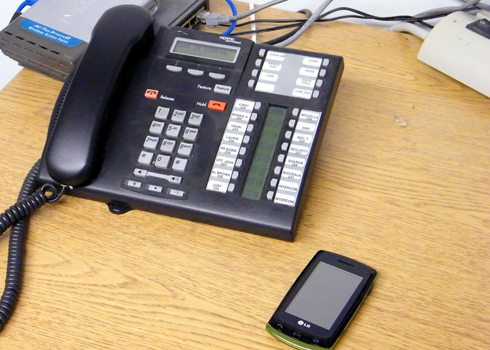For years, people have contended that a right-leaning bias exists in public opinion polls that fail to consider cell phone users. This argument has some new backing– a Pew Research Center report released Monday suggests that polls based on landline-only samples do, in fact, suffer from a Republican bias.
The report, which confirms findings from a mid-October study, suggests that support for Republican candidates is significantly higher when a survey’s sample is composed only of landline telephone respondents, rather than both landline and cell phone users (“dual frame samples”). Pew calculates a bias among likely voters in 2010 that is about twice as large as the statistical skew evident in 2008 landline-only election surveys.
In the October study, Pew looked at four 2010 election polls and found that in three of them, “estimates from the landline samples alone produced slightly more support for Republican candidates and less support for Democratic candidates, resulting in differences of four to six points in the margin.” In the latest study, it was determined that Republicans were favored in landline-only likely voter surveys by an average of 5.1 percentage points more than they were in polls with dual frame samples. In the 2008 presidential election, Barack Obama’s lead over John McCain was on average 2.4 percentage points smaller in landline samples.
For a single-poll example of this trend, Pew’s final pre-election poll found Republicans leading the congressional generic ballot question 51%-39% for the landline-only sample, whereas the lead narrowed to 48%-42% when cell phone interviews were also considered. Currently, the analysis notes, House Republicans lead by a seven-point margin.
While Americans are undeniably growing more reliant on cell phones, there are still those who have access to both a landline and cell phone (“dual users”). The report suggests that dual users who are reached by cell phone differ demographically and attitudinally from dual users reached on their landlines. As such, another bias emerges– those reached by cell phone, who “are younger, more likely to be black or Hispanic, less likely to be college graduates, less conservative and more Democratic,” gave the GOP a five-point advantage in the congressional generic ballot question, whereas Republicans led by 12-points among dual users reached by landline. Pollsters are thus faced with yet another bias to counter, as polling for the 2012 elections is already well underway.
For Pew’s complete report, click here.









